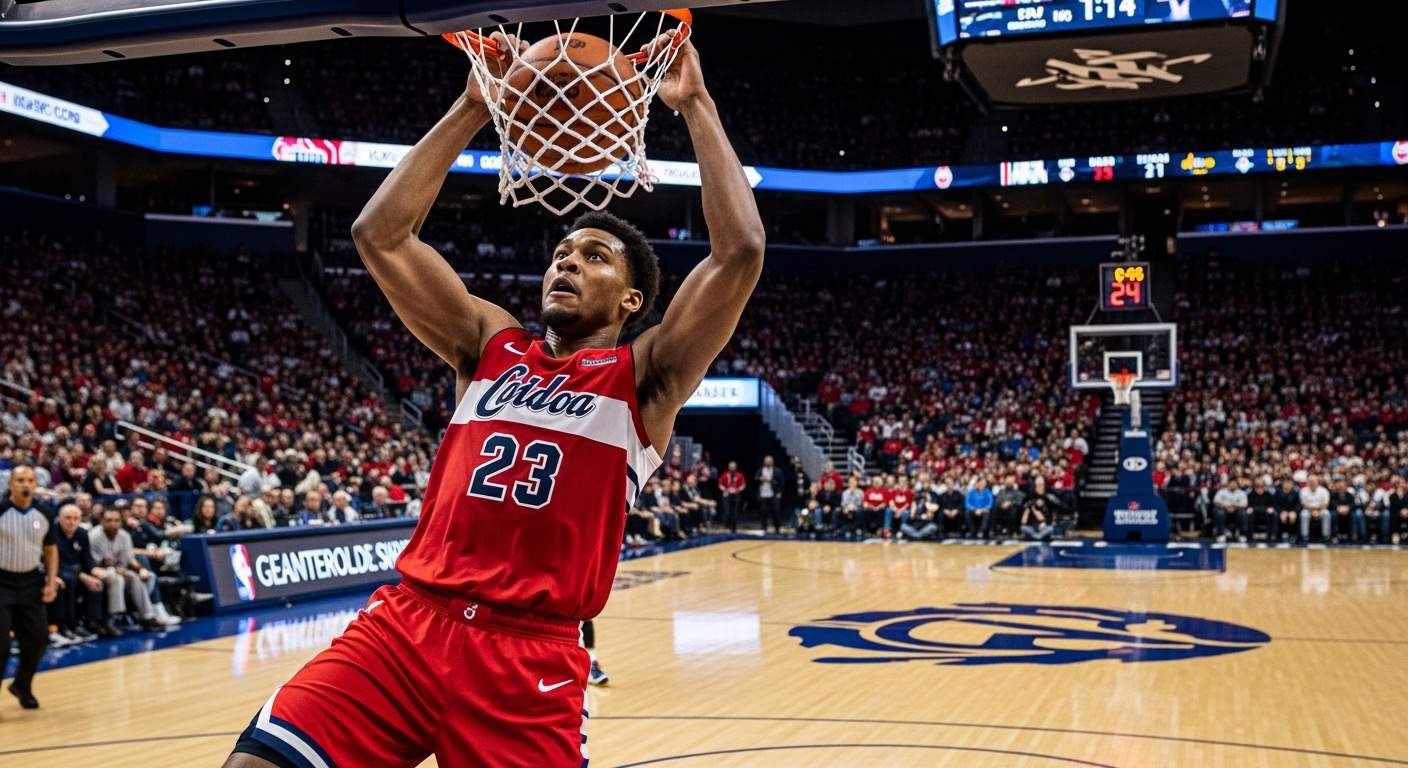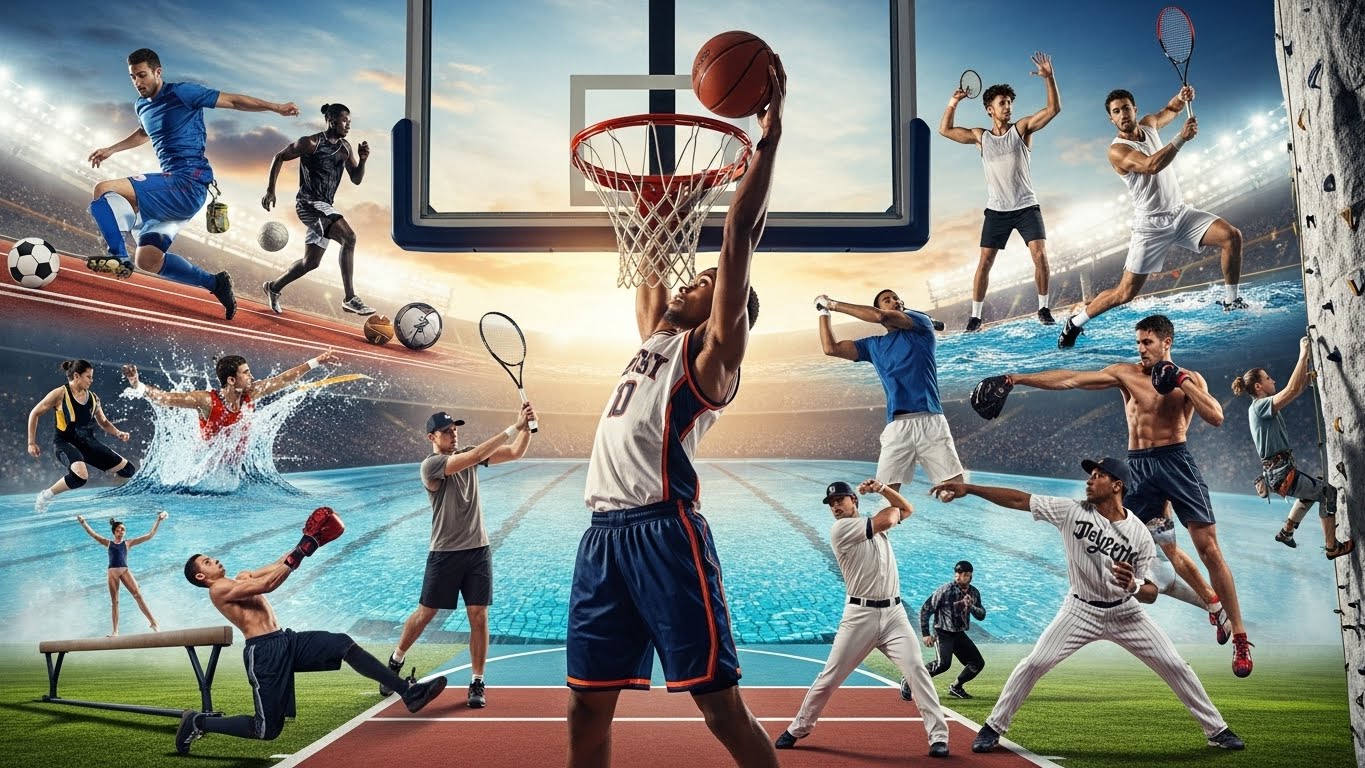Sports have always held a special place in human culture, far beyond mere entertainment or competition. They embody much more than just winning or losing—they represent the pursuit of passion, unity, and personal growth. Whether played professionally or casually, sports hold the power to change lives, build communities, and shape our identities. In this post, we’ll explore the many layers of sports, from the mental benefits to the social impact they have on individuals and society at large.
The Physical Benefits: Pushing Your Limits
The most obvious aspect of sports is the physical challenge they offer. Engaging in sports helps improve cardiovascular health, build strength, and enhance coordination. Whether it’s running, swimming, or team sports like soccer or basketball, regular physical activity improves overall fitness and helps reduce the risk of chronic diseases such as obesity, diabetes, and heart disease. Sports provide a structured environment where individuals can push their physical limits, gain endurance, and experience a sense of achievement through their progress.
Mental Health and Well-Being: More Than Physical Fitness
In addition to physical health, sports play a significant role in improving mental well-being. Exercise has long been linked to the release of endorphins, the body’s natural “feel-good” hormones. Participating in sports can boost mood, reduce stress, and alleviate anxiety and depression. Many people find that engaging in a sport provides them with a sense of purpose, helping them combat mental fatigue and emotional strain.
Additionally, sports can serve as a form of mindfulness. The focus required during gameplay—whether on the field, court, or track—requires athletes to be fully present, which can help clear the mind of daily worries and distractions. This mental clarity can contribute to better decision-making, both in and out of sports.
Building Teamwork and Community: A Shared Experience
One of the most beautiful aspects of sports is their ability to bring people together. The concept of teamwork is central to most sports, teaching individuals how to collaborate, communicate, and trust others. In team-based sports like football, basketball, or rugby, players rely on each other to achieve a common goal, which strengthens bonds and fosters a sense of camaraderie. These experiences teach valuable life skills that go far beyond the game.
Sports also serve as a universal language that connects people across cultures, ages, and backgrounds. They can unite communities, creating a sense of belonging and pride. Local sports events, from high school games to neighborhood soccer leagues, can build deep social ties, providing a common ground for people to celebrate and support one another.
Discipline and Personal Growth: A Path to Self-Improvement
Sports are a microcosm of life—full of challenges, setbacks, and triumphs. Through sports, athletes learn the value of discipline, persistence, and resilience. Training for a game, facing competition, and dealing with losses teach individuals to push through difficulties, stay focused on long-term goals, and never give up.
The lessons learned in sports translate to many aspects of life, from academic and professional pursuits to personal relationships. The dedication required to excel in a sport often leads to improved time management, goal-setting, and work ethic. Sports provide a structured environment for individuals to practice self-improvement, teaching them that success is not just about the outcome, but about the journey and effort involved.
The Cultural Influence of Sports: Shaping Identities
Sports have a profound cultural significance that shapes identities, from professional athletes to amateur players. Certain sports are deeply ingrained in the traditions and values of specific countries or regions. For example, cricket in India, football in Brazil, and baseball in the United States all carry rich histories and are tied to national pride and unity.
Moreover, athletes often become role models, influencing public opinion and inspiring future generations. The achievements of iconic sports figures like Serena Williams, Michael Jordan, and Cristiano Ronaldo transcend the field or court, serving as examples of hard work, determination, and excellence. They give millions of people someone to look up to and inspire them to pursue their dreams, whether in sports or other areas of life.
Sports as Entertainment: The Global Phenomenon
On a global scale, sports have become a massive industry, with events like the Olympics, World Cup, and Super Bowl attracting millions of viewers from around the world. These events are not only about competition but also about spectacle, entertainment, and cultural exchange. Sports have the power to captivate audiences, unite fans, and evoke powerful emotions, whether it’s the thrill of a last-minute goal, a buzzer-beater shot, or a gold medal performance.
The entertainment aspect of sports brings people together, creating a shared experience that goes beyond nationality, race, and language. Fans across the globe rally behind their teams and athletes, creating a sense of collective identity and pride.
Conclusion: The Lasting Impact of Sports
Sports are far more than just a form of entertainment or competition; they are an integral part of our lives, influencing our physical health, mental well-being, social connections, and cultural identities. From teaching valuable life skills to providing a platform for personal growth, sports shape who we are and how we interact with the world. They remind us of the importance of teamwork, discipline, and perseverance, both on and off the field.
As we continue to celebrate the power of sports, let us remember that beyond the games, scores, and medals, sports hold a unique place in fostering personal and societal development. Whether you’re an athlete, a coach, or a fan, the impact of sports on our lives is undeniable—and it’s a legacy that will continue to inspire for generations to come.




